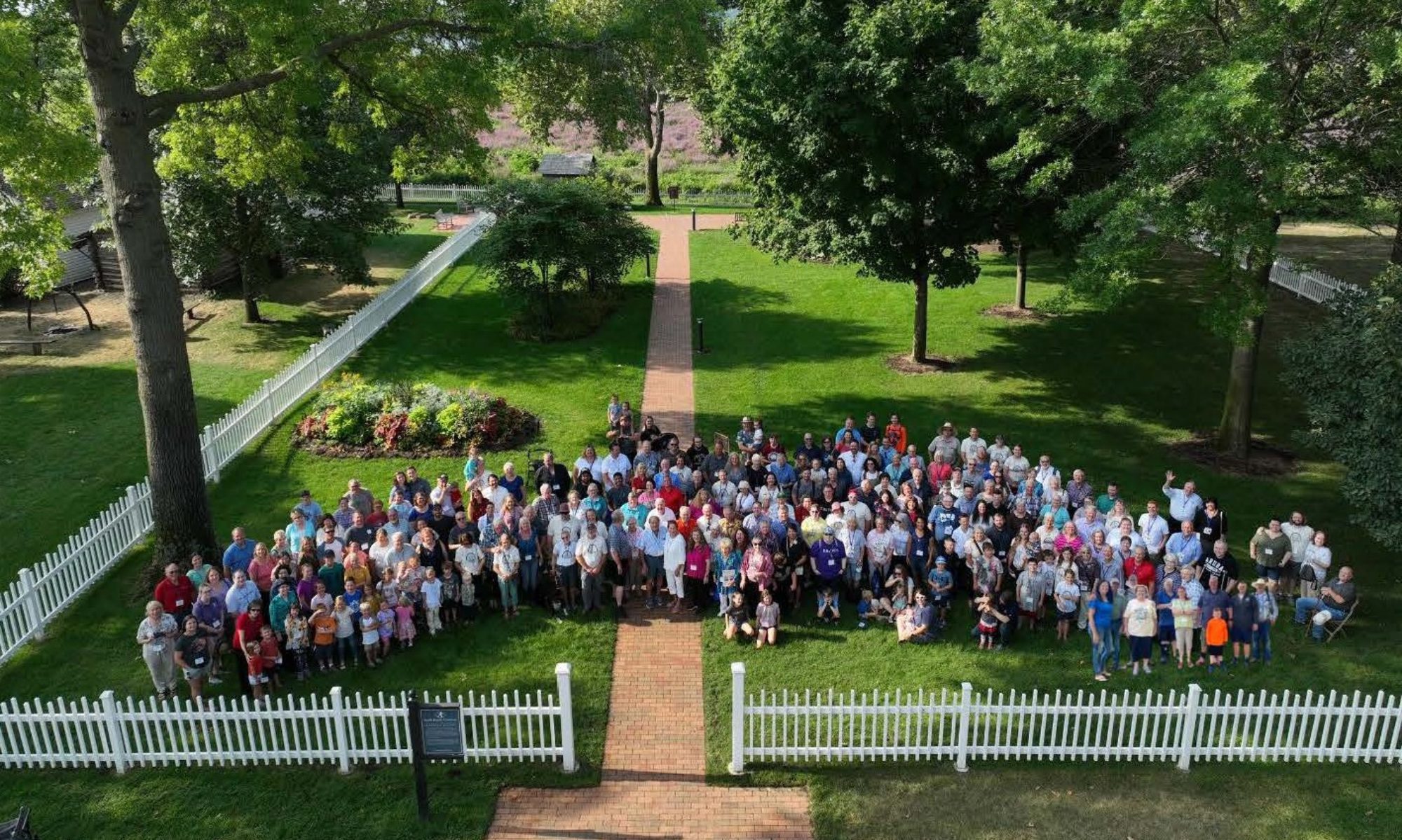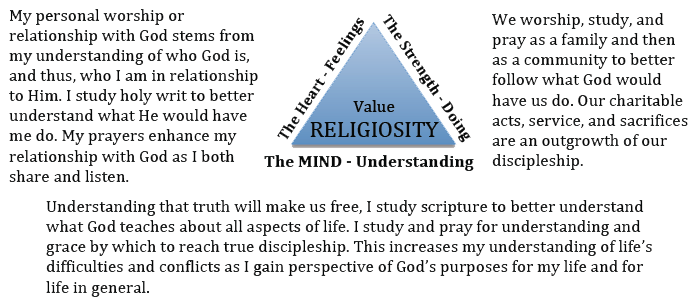FAMILY WORK
As one can see, the family values of family work and recreation also become strategies for internalizing family cohesion. It is through meaningful time spent together, that bonds are formed. When family members engage in work that yields a mutual benefit, not only is communication time increased but also a sense of common purpose develops, as there is a sense of mutual help, synergy, and accomplishment. If on the other-hand the benefit is unilateral, resentment may develop. Youth may not be capable of appreciating the long-term or even near-term benefit of family work time without help. The value-triad can be of assistance; the parent works to make sense using language and examples that speak to the young person’s understanding and feeling levels. Then short term benefits can be provided for those with short attention spans, after short work periods, like points that can add up to purchasing power of something they already value such as items, food, time allowance, etc. will complete the triad and grow within the child the value of family work-time. A garden will benefit the family budget but if a child has nothing to do with paying the bills the benefit won’t seem mutual even with explanations. The Smith Family worked together for survival. When they struggled financially all family members felt the effects. The oldest, Alvin, eventually found that he had earning power through hiring-out that allowed him to return and contribute to a new family home, barn, etc. with the desire to help the family “live more comfortably, particularly his parents.â€2 All family members caught this value of laboring together for the common good of the family thus binding them together in common purpose.
FAMILY RECREATION
Just as family work increases the bonding time between family members so it is with recreation. So why should we separate them as values? In a work atmosphere the relationship between family members is generally hierarchical: teacher-student, boss-worker, oldest to youngest, biggest to smallest, etc. Though this time together is a valuable bonding and learning time, the natural relationship hierarchy can prove inhibitory as well. While work primarily bonds the minds, and yields a product, recreation bonds the hearts and strengthens relationships. Of course there is overlap and what one might call work another considers recreation or relaxation. For the hard-working survival-driven Smith family down-time included; reading, singing, wrestling, jumping at a mark, stick pulling, cooking, work bees, quilting, family gatherings, letter writing, going to town, hunting, shooting, mock battles, dances/balls, picnics, pie-suppers, husking bees, parties, community feasts, national and church celebrations, barn-raisings, sleigh-rides, etc. The unstructured, and inherently enjoyable nature of these activities served to bond the hearts, improve the minds, and physically strengthen the participants, thereby increasing family cohesion. Some activities were serendipitous while family participants carefully planned others.
CONFLICT MANAGEMENT
The enemy of family cohesion will be conflict arising from both within and outside of the family. If a family member feels used, cheated, conned, injured or otherwise abused in any intra-family relationship, personal justice or fairness most likely will become the driving value. Inexperienced family members driven by reactive impulses will engage in fracturing behavior unless conflict resolution, as one of the behaviors of the cohesion triad, has also been caught as a value (including its accompanying skill-set). It becomes not only a value that has potential cohesive benefits but is also a means to the personal benefits of solution-thinking that satisfies the need for justice in the eyes of the offended.
Someone once noted, “Easy work is hard work, done lateâ€. If conflicts are managed at the onset with cohesion as the motivating family value, then injury is prevented, avoiding the need to seek for justice. Add in the value of service/sacrifice, and the drive for justice can be transformed into a process rather than an event. For example: One sibling breaks another sibling’s cell phone. If the offended sibling values the relationship more than the phone and is willing to sacrifice immediate replacement while the other sibling repentantly accepts the responsibility to replace the phone, mercy will satisfy justice. That maturity won’t come naturally, but with time and consistent modeling, teaching, and experience it will grow and flourish under these shared family values.
Are there other skills that enable conflict management? We have noted that the willingness to sacrifice, and be patient are necessary values that all have thinking, feeling, and behavioral components.
As such, understanding that personal sacrifice is an investment rather than a loss changes the negative feelings associated with loss. The purposeful strategy, in which one then skillfully engages, enables long-term solutions. Results include enhanced cohesive relationships that bind family members together.
Patience likewise becomes a deferred gratification skill yielding valuable potential long-term benefits.
Though conditional relationships can lead to disappointments in the short-term, if cohesion, patience, and personal sacrifice are combined under the driving value of building other’s self-reliance then disappointment simply becomes a signal, calling for continued and different skills and effort. Part of the understanding component of the “building self-reliance in others†value is to understand that building others is a means of personal growth. Since building others always builds self in the long run, the feeling becomes that of a “get-to†attitude that enhances the relationship, even in the face of inadequacy, stubbornness, error, hurt, and loss. All intelligent beings are capable of growth when an effective influence strategy is discovered. When working to change or improve others, one must be willing to start with self-improvement. It is a behavior skill linked to the value of conflict management, and driven by the value of cohesion.
RESILIANCY
Even with the best conflict management skills, families can be overwhelmed when crisis occurs. Resiliency is a value that says, “We may be down but we are not done.†It includes the understanding that “failure is only an opportunity to start over with greater intelligence†(Henry Ford). Whether faced with “significant experiences or major life adjustments, such as emotional disturbances, unexpected changes, or major disruptive events (i.e., death, divorce, disabilities),â€3 the question of resiliency is one of why some families recover while others “break down or disintegrate under the same circumstances.†What “characteristics, types, patterns, supports, strategies, and interaction with the community lead to family recuperation?â€4 In our Smith family this process of financial failure, followed by starting over, was repeated with each move and each farm, from Vermont to New Hampshire, New York, Ohio, Missouri, and Illinois until there developed an “us against them†mentality that bonded them together even across the generations and long distances. Cousins continued, even in the face of religious disagreements, to visit each other, send money when needed, and communicate through letters. All of the values thus far discussed contribute to this deeply seated resilient nature of enduring families. That said, one additional value historically and statistically seemed to drive or at least enhance them all.


